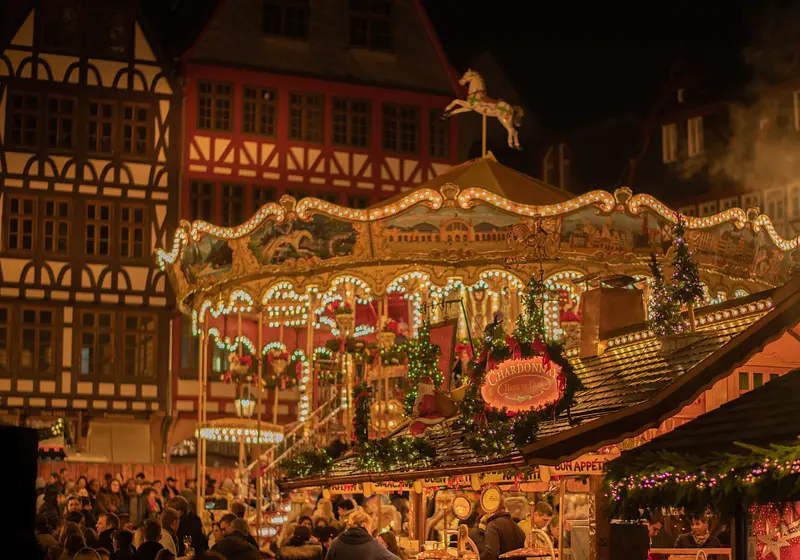As the holidays come to an end, some mourn the packing away of ornaments and the eviction of pine trees to the curb. Many others breathe a sigh of relief at the end of the relentless shopping and forced merriment the holidays can bring.
Or maybe that old feeling of nostalgia and homely comfort was missing from your holidays in recent years, and while you miss it, you're also relieved that the hollowness of the holidays are gone.
After all, the holidays are starting earlier every year, right?
You're not alone. In corporate America, the holidays are starting earlier every year.
The main culprit of holiday capitalism is Christmas. Though it is becoming more common among other holidays, Christmas is still the most afflicted by late-stage capitalism and rampant consumerism.
To understand the full scope of consumerism plaguing holiday celebrations, we must understand the history of them.

Image Credit: Kristina Paukshtite from Pexels
Let us slide into your dms 🥰
Get notified of top trending articles like this one every week! (we won't spam you)A Brief History of Christmas
No, I'm not here to retell a nativity scene. In fact, nativity reenactments and the celebration of Christmas at all was once considered sacrilegious in a colonial America. Attempts at any sort of Christmas celebration or a celebration of Jesus's birth was condemned and even outlawed in Puritan societies. Not to mention that scholars generally agree that Jesus was likely not born on the December 25 that we commemorate.
For the actual celebration of Christmas, we have Greco-Romans to thank for that. Most of our traditions surrounding Christmas and the holiday season can be traced back to Pagan traditions of the winter solstice.
While we associate the winter solstice with “the shortest day of the year”, ancient, pre-Christian Greco-Romans thought of it as the beginnings of an eventual return of abundant sunshine, as it marks the period where the duration of sunshine begins to lengthen, rather than shorten, giving way to spring.
This momentous occasion was promptly celebrated with dancing, singing, feasting, and widespread merriment for Earth's axial tilt. This celebration was called Saturnalia, after the Roman god of agriculture, signifying a return of plentiful and verdant crop growth.
In fact, when Christianity popularized and took root, centuries after these festivals had first begun, Christian priests spurned any Pagan celebrations regarding the solstice. Rather, they tried to make the birth of Jesus and this joyous time inseparable--that is, claiming the time around the solstice was the birth date of Jesus. Pagan celebrations eventually became suppressed as Christianity spread, namely to the Roman Empire, and soon became a thing of the past.
It wasn't until the 19th century that we see some semblance of commercialization seeping into the holiday.
With the introduction of the Industrial Revolution and widespread commercialization in America, gift-giving became a much more common thing. Christmas “cheer” began appearing in literature, with “The Night Before Christmas” poem being published in 1823. Santa Claus's modern look--paired with the famed reindeer, the sleigh, the jolly suit, and the workshop--was popularized during this time as well.
The tradition of the adorned tree came from German immigrants, and that soon spread throughout the nation. As Christmas celebrations became more and more secular and commonplace, Christmas became a federal holiday by 1870. Santa Claus, especially, was hailed because gift-giving and festivities were available to rich and poor alike with only the condition of being nice.
Some may say the original intent of the holiday has been restored: the religious symbolism of Christmas is considered optional, and it is celebrated worldwide just around the winter solstice.
Yet is Christmas too commercialized?

Image Credit: Tuur Tisseghem from Pexels

Take the Quiz: Which Squid Game Player Are You?
Ever wondered which player you’d be if you found yourself in the Squid Game universe? Take this quiz to find out which character matches your perso...
The Commercialization of Christmas in Modern America
From major retail companies like Walmart and Sam's Club advertising Christmas displays and decor as early as October to Macy's iconic window displays in Chicago and New York being set up in early November, many Americans are feeling holiday whiplash. What only worsens the consumerism so many Americans feel the pressure of are capitalist “holidays” like Black Friday and Cyber Monday, which encourage mass spending with the promise of lower prices and discounts. These nationwide sales often send people straight into “holiday shopping” mode, where nothing matters but deals and shopping en masse, leading to mass consumption and casting a consumerist lens on the holidays.
Companies and corporations benefit massively from the over-consumption seen with these sales, leading to expanded advertising and Christmas sweeping through stores as early as October. This leads to the holidays feeling far more materialistic and superficial every year, seemingly far removed from the celebrations of the Pagans.
In a world driven by corporate greed and materialism, how can we find joy in the holidays?
So, What Can We Do?
While it may seem hopeless in late-stage capitalism, there are still many ways to enjoy the holiday while also minimizing the impact of corporate greed on your holiday experience.
It's unrealistic to assume that everyone will simply stop purchasing these products or partaking in these deals. There's nothing wrong with wanting to look at cool displays or purchasing gifts from major retailers for a loved one.
The most important thing is balance.
You can participate in these deals whilst also enjoying your holiday season through balance. Next holiday season, consider making some homemade gifts or buying from small businesses, so you know exactly where your dollar is going. You can enjoy holiday lights and Hallmark films, but you can also limit impulse buying by setting a budget or limit for deals like Black Friday and Cyber Monday.
In addition, you don't need major companies telling you to enjoy something to actually enjoy it. Do something you love, whether that be caroling, volunteering at a nursing home, or simply painting something. You can also put your own holiday spin on it.
I, for one, like to write a holiday-themed short story every year. In the midst of all the stress that comes with the holiday season, it's okay to remember to take time for yourself too.
All in all, the most effective ways of limiting capitalistic influences on your holiday season is just finding balance. Reevaluate the ways you engage with the season and find the limits between corporate deals and the true spirit of the holiday, whatever that may be for you.









